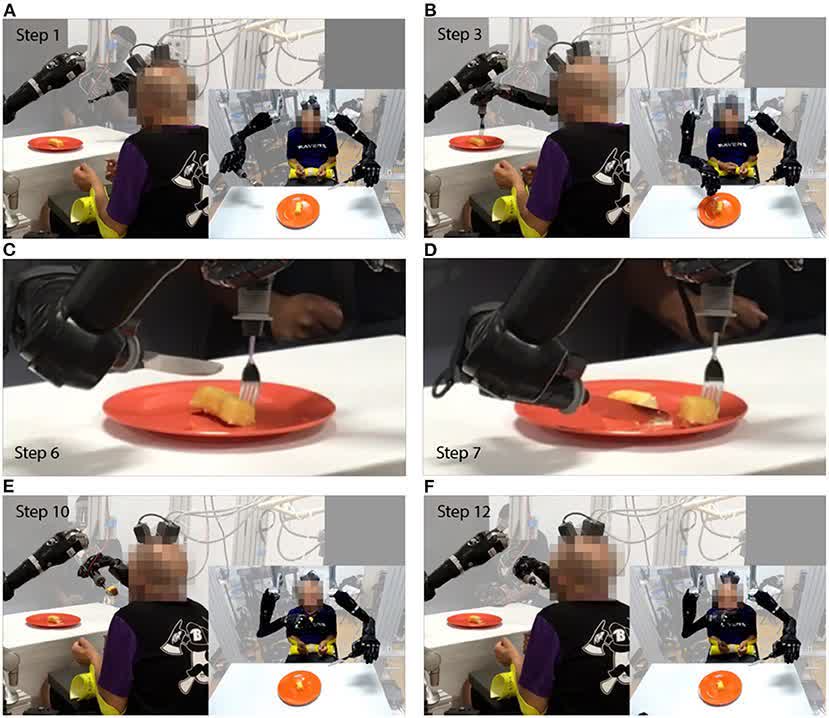In brief: Brain-computer interfaces have recently seen promising advancements, often intersecting with prostheses. Tests have shown patients controlling computers with their minds and regaining lost motor functions with robotic limbs. Replicating complex everyday tasks, like eating, is an essential step in this sector.
A paralyzed man has fed himself for the first time in 30 years by remote-controlling robotic arms with his brain. Researchers at Johns Hopkins University in Maryland designed a brain-computer interface to perform a multi-step action that non-disabled people perform daily.
The test subject sustained a spinal injury three decades ago that left him with partial arm movement but almost no use of his fingers. After researchers implanted electrode arrays into his brain, he could manipulate the prosthetic arms to cut a piece of food and guide it into his mouth.

With a fork and knife already attached, researchers calibrated the robotic limbs beforehand to know where the user, plate, and food were. The primary challenge was interpreting the user's multiple movement commands in the proper order in three dimensions. Out of 37 trials, 26 were successful, while in 11 cases, the fork arm couldn't reach the food.
Other brain-computer interfaces have demonstrated digital tasks rather than limb movement. Last December, a paralyzed Australian became the first person to tweet just by thinking about it. Last April, Elon Musk's Neuralink company demonstrated a monkey playing Pong with its brain. With further research, it will not be long until amputees or others with severe motor function difficulties can regain everyday abilities.
https://www.techspot.com/news/95147-brain-connected-robot-arms-enable-paralyzed-man-feed.html